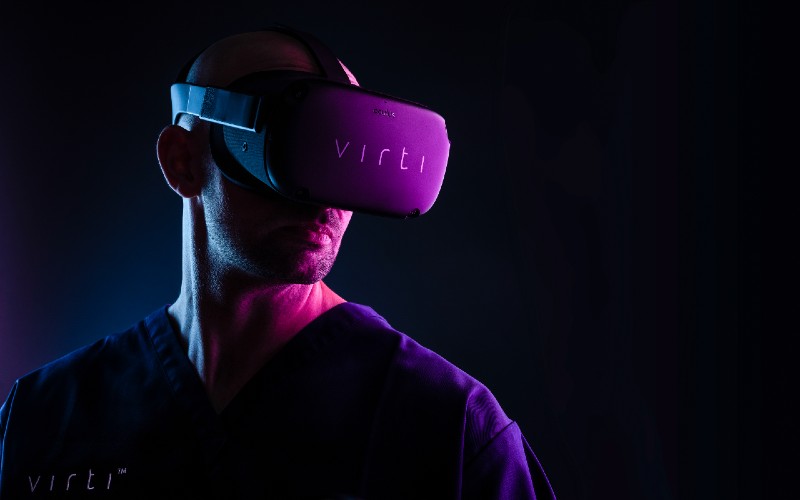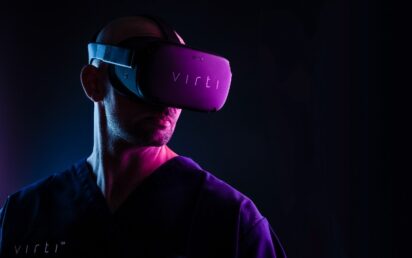Virtual reality thundered on to the scene several years ago promising to transform how we work, play and live.
But for all the hype, and rise of tech companies delivering jaw-dropping immersive experiences from mindfulness to videogames and workplace training, the wider penetration has been relatively small.
That could be about to change with the rise of the metaverse – the label attached to fully digital worlds where people and businesses can interact rather than operating in isolation.
“With the metaverse being built as we speak, it’s soon going to become more and more normal for us to shift parts of our lives into a fully digital world,” Dr Alex Young, CEO and founder of Virti, tells BusinessCloud.
Virti builds augmented and virtual reality simulations to help people train and learn more effectively. It applies sophisticated artificial intelligence models to analyse a learner’s performance and provide granular data on their skill development journey.
“Our ‘Virtual Humans’ interact with learners just like ‘real’ humans would – whilst also gathering data and providing feedback to help improve the learner’s soft skills and communication,” explains Dr Young, a former NHS surgeon.
“A middle manager could brush up on their communication skills with the help of an AI-powered avatar that can assess and track hundreds of performance metrics; or a sales team member could practice complex product demos in a zero-risk virtual space when using a VR headset.
“Companies are operating in an increasingly competitive environment, with hybrid working becoming the norm and the war for talent intensifying. Employers need to seize impactful, digital and efficient strategies to onboard and train their teams.”
With content hosted in the cloud, users can access Virti remotely via mobile, desktop or mixed reality headsets.
Dr Young built two businesses prior to Virti – an events company then online firm specialising in exam preparation – while also practising full-time as a surgeon.
“Whilst training and practising as a doctor, it struck me that there were very few opportunities for my fellow students and colleagues to access hands-on training for the development of key skills,” he says.
“This was detrimental to their learning, their confidence and to patient safety.
“Insights from educational theory tell us that immersive and interactive learning methods are by far the most impactful. They have also been proven to be the fastest route to knowledge or skill acquisition.
“This explains why immersive training has been proven to be many times more impactful than other online or e-training programs. Learners are fully immersed in the content, so they build familiarity and confidence at an accelerated rate.”
Universities and multinationals
After pursuing a masters degree in education, he set about building a tech platform to support scalable, immersive training for professionals.
Today, world-famous universities, multinational companies and healthcare organisations use the Virti platform to onboard and upskill their remote or hybrid teams.
Over the past year, it has seen revenues grow by nearly 1,000% while its team has expanded to more than 50 people.
“I taught myself to code aged 14: I used these skills to build my first business as a student, and I have continued to use them in every business venture since,” says Dr Young.
“Every child should be encouraged to experiment with coding; as our world becomes increasingly digitised, the ability to code will soon become as important as the ability to read and write.”
ARVRGames legend Sir Ian Livingstone to launch Hiro Metaverse SPAC


